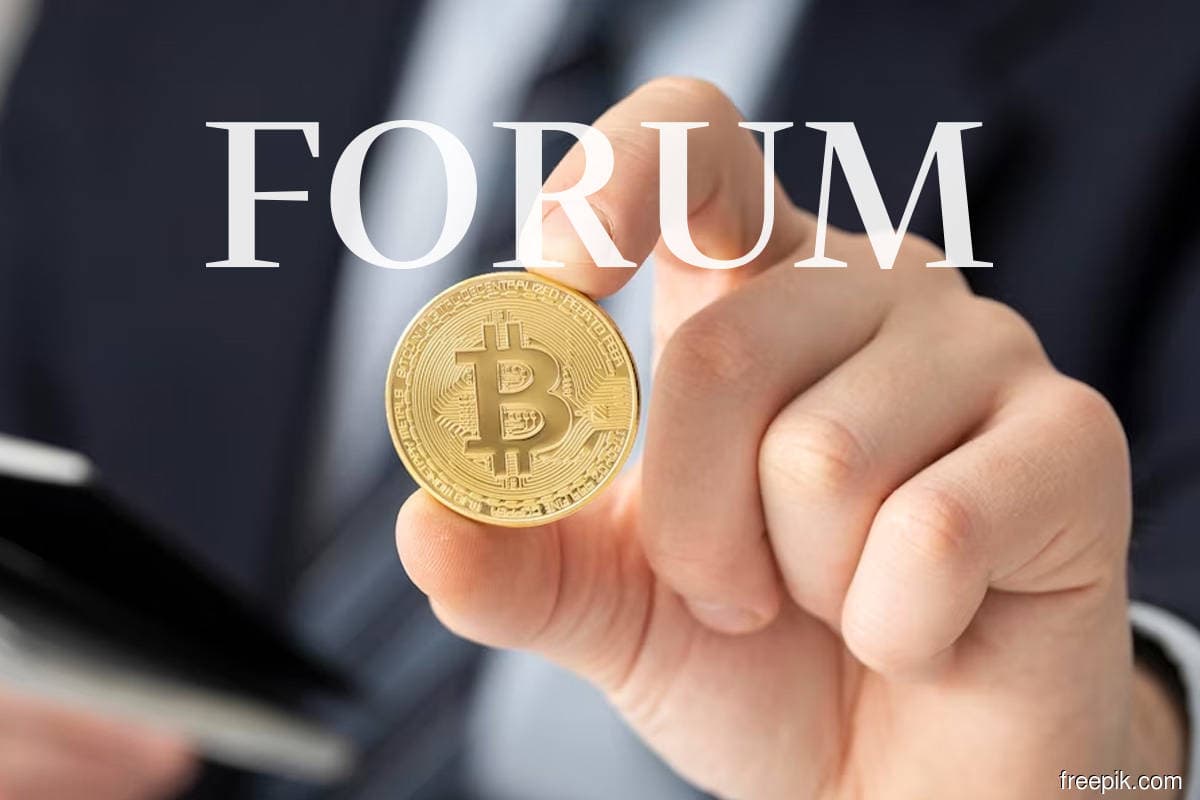
This article first appeared in Forum, The Edge Malaysia Weekly on February 27, 2023 - March 5, 2023
In this era of globalisation, Islamic finance has come into its own, being well developed in Malaysia and well known throughout the world. It can be seen as a good sign that banks such as Maybank Islamic Bhd and Affin Islamic Bank Bhd are promoting many Islamic finance products such as ijarah (leasing), mudharabah (profit sharing) and musyarakah (partnership).
In the context of globalisation, however, new issues have surfaced that need to be interpreted from the viewpoint of Islamic finance. One such development is the emergence of digital currencies throughout the financial world. A digital currency is an electronic form of money that operates independently of the central bank. Take, for example, Bitcoin. It is the most popular virtual currency that operates without the involvement of any person, group or entity (third party) during the payment transaction. However, in Malaysia, Bitcoin is not recognised and Bank Negara Malaysia has warned the public to be aware of the risks associated with the usage of an unregulated currency. Nevertheless, a shariah-compliant digital currency is operated in Malaysia by AEON Credit Service (M) Bhd based on the Tawarruq principle. This is a principle in Islamic finance that allows the sale and purchase of assets by way of deferred payment.
Regardless of whether a digital currency is officially recognised in the financial and business world, in Islamic finance, there are three important elements to be complied with — the trade must be free from riba (usury), gharar (uncertainty) and gambling. Some digital currencies are associated with gharar. Gharar refers to the uncertainty that may exist about the transaction that may cause doubt about the transparency of the business. Due to such uncertainty, digital currencies such as Bitcoin are not recognised under the law.
Surah Hud verse 87 states: “O Shu’ayb, does your prayer command you that we should leave what our fathers worship or not do with our wealth what we please? Indeed, you are the forbearing, the discerning!” This verse illustrates the importance of maintaining the integrity of the currency and the prohibition against doing things unreservedly. Even though the Holy Quran does not mention the specific characteristics or shape of money, from the Islamic perspective, the principles mentioned in it must be followed by Muslims.
In reference to Bitcoin, which is the most popular digital currency, there are three different views in Islamic finance. First, for the Egyptian Fatwa Council, Bitcoin is illegal. This is because involvement in Bitcoin dealings is far too risky, both for individuals and nations. According to the Mufti of the Egyptian Republic, Syeikh Shauqi ‘Allam, Bitcoin is banned on the principle that it does not meet the requirements to be recognised as a currency. Second, according to Tan Sri Dr Mohd Daud Bakar, chairman of the Shariah Advisory Council (SAC) at Bank Negara, investing in Bitcoin is permissible, and the profit earned should be subject to zakat. He states that risk is normal in every matter, whether in business, investment or any other field. The third view is from the International Shari’ah Research Academy for Islamic Finance (ISRA). The academy has not issued any objection to any opinion on digital currency. In the Islamic tradition, this is known as tawaqquf (not expressing an opinion on a certain matter).
Based on the views above, the former minister in the Prime Minister’s Department (Religious Affairs) Senator Datuk Seri Dr Zulkifli Mohamad Al-Bakri, on behalf of the mufti of the Federal Territory’s Office, issued a fatwa that Bitcoin was unacceptable. It can be admissible only if improvements are made to the system for regulating Bitcoin — covering withdrawals, price control, the security of the exchange and strict regulation to prevent exploitation by irresponsible parties.
The term “digital currency” does not refer only to Bitcoin as there are many other platforms such as Luno, Kucoin and Huobi. Bank Negara has issued a draft regulation to seek public feedback regarding cryptocurrencies in line with the Anti-Money Laundering, Anti-Terrorism Financing and Proceeds of Unlawful Activities Act (AMLA 2001).
These rapid developments in the financial world may confuse the Muslim community due to the non-existence of specific guidelines on such currencies in our primary references, which are the Quran and Sunnah. However, this does not make digital currencies automatically forbidden from an Islamic perspective. The best solution in this situation is to ensure the certainty and safety of the products or services.
Generally, there is no specific fatwa or hukum syarak on digital currencies due to the wide range of services they offer, each having its own special qualities and operating principles. Therefore, we are encouraged to evaluate them on our own. People who have no experience or knowledge of Islamic finance can conduct some research and ask the experts for answers about digital currency issues.
To conclude, due to the different principles used in operating digital currencies, an evaluation must be made about the advantages and disadvantages of the various currencies. If there are more disadvantages than advantages, then it is not recommended to use such products or services. According to the Securities Commission Malaysia, investors are advised to seek legal and expert advice before engaging in this financial sector. This will help them avoid being involved in any fraudulent, money laundering or terrorism financing activities.
Nur Nadhirah Zulkifle is a fifth year student of the Bachelor of Laws and Shariah with Honours programme at the Faculty of Syariah and Law, Universiti Sains Islam Malaysia (USIM)
Save by subscribing to us for your print and/or digital copy.
P/S: The Edge is also available on Apple's AppStore and Androids' Google Play.